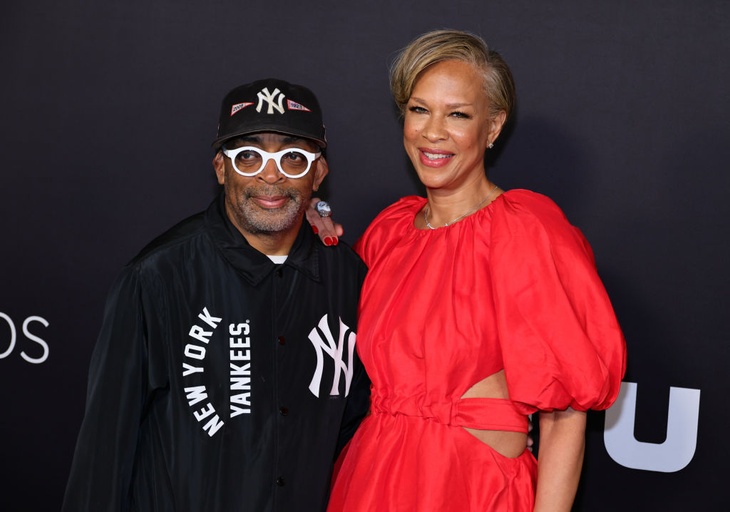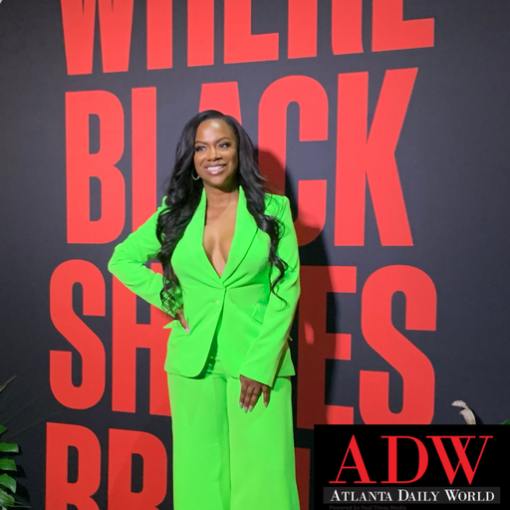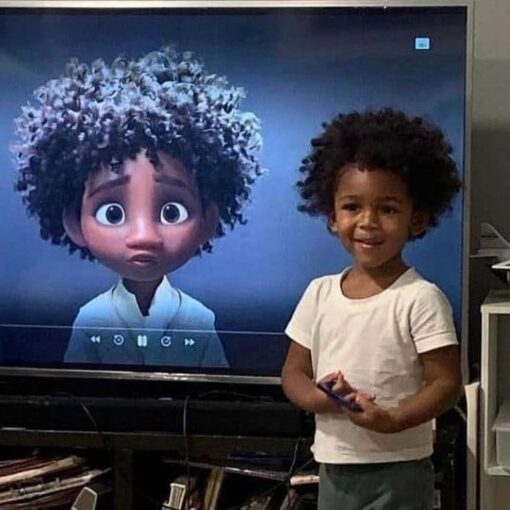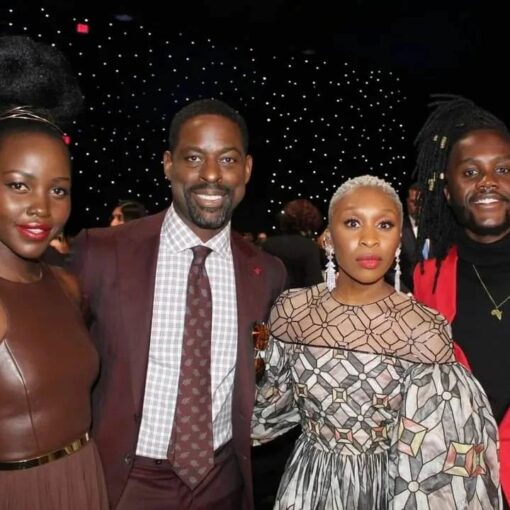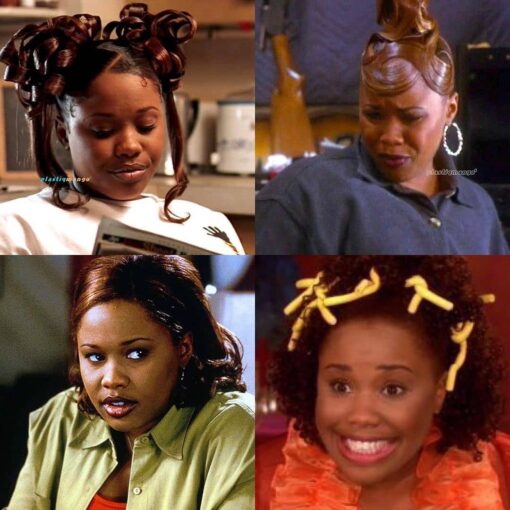HULU Doc ‘Aftershock’ Brings Attention To Black Maternal Mortality Epidemic
The film, which premieres on HULU today on July 19th highlights the Black maternal health crisis, an issue that we all need to be sounding the alarm over. We’ve heard Serena Williams describe her own near-death experience giving birth and reported far too many stories of Black women dying bringing their babies into the world.
“It’s heavy heavy,” Tonya Lewis Lee told BOSSIP’s Sr. Content Director Janeé Bolden. “But we have to talk about these things in order for them to get better.”
“I just don’t women to be afraid to give birth,” Lee added, in regards to the eye-opening portrait of the Black birthing issue. “If anything, I hope people come away empowered, thinking about ‘What is the best birthing option for me? How do I get my best support so I can go in my zone, and let my body, mind and spirit do the work when it comes to birthing this child?’”
Lee, who is currently celebrating the 20th anniversary of her children’s book ‘Please Baby Please,’ sees her work on ‘Aftershock as another way of contributing to Black families.
I really care about Black families, Black children, Black women,” Lee says. “When my children were little there weren’t enough books with children that looked like them, so I wrote ‘Please Baby Please,’ about a child in a day in their life so that my children and others could see themselves reflected.
Tonya Lewis Lee’s Infant Mortality Awareness Campaign Work Led To Maternal Health Doc
Lee says she became aware of what was happening with Black maternal health after joining an infant mortality awareness campaign in 2007. During her travels working with the campaign for nearly a decade, she found an anecdotal pattern of far too many people with the same story to share — one of someone they knew and/or loved who passed away from childbirth complications. In around 2017, she began exploring the idea of making a documentary to bring attention to the issue, then Lee met her ‘Aftershock’ directing/producing partner Paula Eiselt in 2019, the same year that one of the film’s main subjects, Shamony Gibson died.
“Shamony Gibson died in October 2019,” Tonya Lewis Lee told BOSSIP. “In December, her mother Shawnee Benton Gibson and her partner Omari Maynard essentially put out a call to action on social media, they were having a celebration of Shamony’s life and they invited the community to come in to talk about what was happening and we called Shawnee to ask if we could film and that really was the beginning of the film that you see.”
Source: Theo Wargo / Getty
‘Aftershock’ Details The Lives And Deaths Of Shamony Gibson And Amber Rose Isaac
Much of ‘Aftershock’ surrounds the lives and tragic deaths of two New York women, Shamony Gibson and Amber Rose Isaac, and their partners Omari Maynard and Bruce McIntyre, but the film does a phenomenal job describing the toll that Black maternal mortality has taken on the community at large. Fortunately, the story doesn’t end with the deaths of these mothers — a lot of time is spent following Gibson’s mother, as well as Maynard and McIntyre as they work to bring attention to this epidemic and to create solutions.
“In making art, there is a spiritual element that happens if you’re really open to following the story,” Tonya Lewis Lee told BOSSIP. “When we saw that Shawnee put out that call to the community to engage the conversation, during that event Omari had a men’s circle of men who had also lost partners to childbirth complications. Then in April of 2020 Amber Rose Isaac passed away and a week later Bruce McIntyre had a press conference to demand accountability for Amber’s death from the hospital and also to continue the conversation. He asked the question, ‘Why are we dying?’ Omari also saw what had happened and he reached out to Bruce, just to say ‘Look, brother, I know what you’re going through. If you need me, I’m here.’ They began talking. Omari told Bruce about the film and then we reached out to Bruce to see if he would be open to sharing.”
“Bruce often says the reason why he wanted to be involved with the film was that when Emmett Till died , Mamie Till decided to open up the casket so that people could see what was done to her child. And for him it’s a similar thing, he wants to open up the story so people can see so that we can fix the problem. We really just followed the people. I love that Omari reaches out to other fathers, he provides support, he paints portraits of these women, and he’s doing activist work as well. And Bruce is working to open up a birthing center, he’s working on legislation so that midwives can open their own birthing centers. He’s got what they call the Womb Bus, which is like healthcare on wheels. They were just the right people at the right time. I think that was divine that we were to meet them.”
‘Aftershock’ Exposes History Of Midwifery And Attack On Black Midwives
Beyond the Black maternal mortality crisis, ‘Aftershock,’ also delves into causation, exploring how childbirth in the United States has transformed drastically over the last century. Part of the issue in the US seems to lie with the way women rely more on hospitals and c-sections and less on natural births and midwifery.
“Midwives have been around since the time of ancient,” Tonya Lewis Lee explained to BOSSIP. “It’s just amazing to think that the United States thinks that it knows better than the ancients and every other industrialized nation right now, because every other industrialized nation has midwives integrated into women’s healthcare.”
“As we were doing our research and talking to people, we were fortunate to meet a woman named Helena Grant, who is the midwife expert in our film, who is just a wealth of knowledge about the history of midwifery. It was really important to show how we got here in terms of maternal health and thinking about it, because we hadn’t really thought about it. How did we go from having midwives to going into hospital? And what is lost because of it? They took the economy of midwifery away from women, away froom Black women and put it in the hands of doctors and hospitals, which I think is doing us a disservice. And look, the midwives need to get it together because as we say in the film, the midwifery industry is 87% white and they need to do some work as well to bring in more Black midwives so we have more options.”
‘Aftershock’ Shares Oklahoma Woman’s Beautiful Birthing Journey
Along with the stories of Amber Rose Isaac and Shamony Gibson, ‘Aftershock,’ also follows the childbirth journey of an Oklahoma woman named Felicia Ellis. We were shocked to learn that the mortality rate in Oklahoma is one of the worst in the US, so during our screener viewing, we initially watched Ellis’ journey fearfully, worried for her fate.
“We ended up traveling down to Tulsa, OK with Dr. Neel Shah, our doctor that we have in the film, and he was working with a woman named LaBrisa Williams, who heads up the Tulsa Birth Equity Initiative that brings doulas to pregnant women in Tulsa,” Lee told BOSSIP. “LaBrisa connected us with Felicia.”
“What was so interesting to us is that when we first meet Felicia, she really thought she was going to give birth in a hospital with a doctor,” Lee continued. ” he didn’t really know the doctor, it’s not like they had a history together. She was pregnant, she needed a doctor, she went there. Nice guy, happened to be a Black guy. Towards the end of her pregnancy — she was like 35 weeks, she was like ‘Maybe there’s another way to do this, let me go investigate.’
“I love Felicia’s storyline because it shows you what we can do,” Lee added. “Just because you’re at 35 weeks doesn’t mean that you have to continue on the road that you’re on. If you want to make a choice to birth in a different way you can do that. Felicia went and found a space that made her feel supported and safe so that she could really have the kind of birth that she wanted to have. She happened to have a truly beautiful birth, that was the kind we’d hope we all might have. I really appreciated that she said in the film, ‘This is the hardest thing I’ve ever done, it’s the hardest work I’ve ever done.’ I think people are afraid sometimes of the labor and the pain and the hard work. I think sometimes you have to go through that. It doesn’t mean you can’t survive it. You just have to get through it sometimes to get to the other side. As our midwife, Helena Grant says, ‘When a woman is birthing a child, she’s not just birthing a child, she’s also birthing a mother.’ So that’s also part of our process.”
Source: Theo Wargo / Getty
Tonya Lewis Lee Says Black Maternal Health And Reproductive Rights Movement Is All One Conversation
With the timing of the release of ‘Aftershock’ so close to the recent devastating Supreme Court reversal of Roe Vs. Wade, we asked Lee how reproductive rights activists and maternal health advocates might be able to work together to amplify the overall issue of women’s health. Lee believes the key lies with Black women and the movements are all part of the same conversation.
“I think Black women and our voices need to be heard on these issues,” Lee told BOSSIP. “I think too often white women, sometimes well meaning, can take over the conversation about abortion rights and Black women’s rights can get lost. It’s all women first and then ‘okay Black women, you second,’ it’s really important that Black women start coming out in the frontline of this because we are truly the canaries in the coal mine.”
“Yes I care about my Black women and everyone should care,” Lee added. “For those white people who don’t care, if you focus on Black women then you fix it for everybody because what’s happening to us, ultimately comes for you. We need to be focusing on the most vulnerable, which are Black women, around not just for maternal health but for reproductive health in general and what’s happening in this country scares me for us.”
“Honestly it all comes back to the root of slavery because that is the beginning of us not having autonomy over our bodies. It was not legal for us to abort babies we did not want to have based on rape or forced breeding and here we are, dealing with the same thing. Black women’s voices need to be front and center. As we talk about maternal health, it is reproductive health and it is all one conversation.”
It doesn’t get any more real than that. ‘Aftershock’ is streaming now on Amazon.
When it comes to impacting lives, Lee’s work in women’s health also extends beyond the screen. She told BOSSIP that her work with the infant mortality campaign led her to create a line of supplements, Movita Organics.
“I ultimately got to Movita, because I wanted to continue a conversation with women about how we access and live our healthiest lives,” Lee told BOSSIP. “It’s a premium supplement that I’m really proud of that is a tool in a woman’s toolbox, it’s not the end all be all, but it’s a tool that can hopefully power you to make good decisions for health and wellness all day after you’ve taken it in the morning.”
Movita Organics is available online or on Amazon.

